Charlie Edwards
May 8: Ramona Hernández and Anthony Stevens-Acevedo on the Spanish Paleography Digital Teaching and Learning Tool
On 03, May 2012 | In Meetings | By Charlie Edwards
Please join us on Tuesday, May 8, 2012 when the leaders of the Spanish Paleography Digital Teaching and Learning Tool project, funded by a Digital Humanities Start-Up Grant awarded by the NEH’s Office of Digital Humanities, will visit CUNY DHI to discuss their work to date. The project aims to teach users the paleographic skills required to decode early-modern Spanish manuscripts.
Tuesday, May 8, 2012, 6:30pm-8:30pm
Room 6496, CUNY Graduate Center
The Spanish Paleography Digital Teaching and Learning Tool
Ramona Hernández and Anthony Stevens-Acevedo, CUNY Dominican Studies Institute, City College
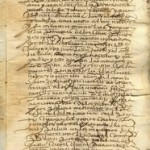
The Spanish Paleography Digital Teaching and Learning Tool aims to teach users how to decode and read the now abstruse three main handwriting styles in fashion in the early modern Spanish-language world. At the heart of the project is the creation of a website prototype where visitors will be able to consult, on the same screen, different samples of early-modern Spanish handwritings and line-by-line transcriptions into contemporary typeface. By a basic process of repeated visual comparison, the users learn how to decipher or decode the early-modern Spanish manuscripts – a learning that still today, for the most part, is restricted to very specialized university, archives and library settings. Allowing Internet users worldwide to access this learning at any time will hopefully entice more students and scholars in the Humanities to conduct research on the early-modern Spanish world, while democratizing access to the paleographic skills involved.
About Ramona Hernández:
Dr. Ramona Hernández is director of the Dominican Studies Institute of the City University of New York (CUNY) housed at The City College of New York, and is Professor of Sociology at City College and on the faculty of the Graduate Center, CUNY. She serves as a trustee of the International Institute of Advanced Studies in the Social Sciences (Instituto Global de Altos Estudios en Ciencias Sociales) of the Dominican Republic. Dr. Hernández earned the Ph.D. and M.Phil. in Sociology from the Graduate Center, CUNY; an M.A. in Latin American and Caribbean Studies from New York University; and the B.A. in Latin American History from Lehman College. She is also author of pioneering texts in the areas of migration, labor, and Dominican studies, including The Mobility of Workers Under Advanced Capitalism: Dominican Migration to the United States (named Outstanding Academic Title by Choice, 2002) and, as co-author, The Dominican Americans (1998). She is a trustee of the Sociological Initiatives Foundation.
About Anthony Stevens-Acevedo:
Anthony Stevens-Acevedo is assistant director and founding member of the Dominican Studies Institute of the City University of New York (CUNY DSI) at The City College of New York. He is a founding member of the Council of Dominican Educators, the Dominican Studies Association, and a Foreign Corresponding Member of the Dominican Academy of History (Dominican Republic). Stevens-Acevedo is a historian and focuses his research on the early colonial history of the Dominican Republic. He is the lead investigator in CUNY DSI’s Dominican colonial research projects. He has an M.A. in History from The City College of New York, CUNY, and a B.A. in History of the Americas from the University of Seville, Spain. He is currently a student in the History Program at the CUNY Graduate Center.
Dr. Hernández and Stevens-Acevedo have recently co-authored the chapter ‘Dominican Americans’ for ‘Multicultural America: An Encyclopedia of the Newest Americans,’ Ronald H. Baylor, editor, 2011. In 2011 they co-edited a special issue on Dominicans in the United States of “Camino Real,” the Journal of Instituto Franklin of the University of Alcalá, Spain, devoted to the Hispanic world in the United States.
May 1: Doug Reside (NYPL) on the Digital Creative Process of Jonathan Larson’s RENT
On 26, Apr 2012 | In Meetings | By Charlie Edwards
Please join us on Tuesday, May 1, 2012 when we will be delighted to host Doug Reside of the New York Public Library.
“How do you document real life?: Discovering the Digital Creative Process of Jonathan Larson’s RENT”
Doug Reside, New York Public Library
Tuesday, May 1, 2012, 6:30pm-8:30pm
Room 6496, CUNY Graduate Center

Doug Reside will discuss his attempts to reconstruct the creative process that produced the musical RENT by recovering and studying the digital drafts from Jonathan Larson’s original floppy disks. Reside will also offer some reflections on his newly minted position as Digital Curator of the Performing Arts at New York Public Library and will suggest strategies libraries may employ for dealing with the coming onslaught of born digital research collections.
About Doug Reside:
Doug Reside became the first Digital Curator of the Performing Arts at New York Public Library in February of 2011 after serving for four and a half years on the directorial staff of the Maryland Institute for Technology in the Humanities (MITH) at the University of Maryland in College Park. He has led numerous Digital Humanities projects and is currently editing the Musical of the Month blog at NYPL which makes available one musical theater libretto each month in various ebook formats.
Spring 2012 CUNY Digital Studies/Digital Humanities Seminar Schedule
On 26, Apr 2012 | In Meetings | By Charlie Edwards
We are delighted to announce (though belatedly!) our full schedule of events for Spring 2012, sponsored by the Center for the Humanities at the CUNY Graduate Center. We have three exciting presentations still to come in May and very much hope you will be able to join us.
All events are free and open to the public, and take place at the CUNY Graduate Center.
Friday, February 17, 4pm-6pm: “Debates in the Digital Humanities: A Panel Discussion”
Chair: Matthew K. Gold and Panelists: Stephen Brier, Charlie Edwards & David Greetham
Room 4406, CUNY Graduate Center
Sponsored by the Ph.D. Program in English
The semester began with a panel discussion kindly hosted by CUNY Graduate Center’s English PhD Program as part of the program’s “Friday Forum” series. The topic was Debates in the Digital Humanities, recently published by the University of Minnesota Press, and edited by our own Matthew K. Gold.
Monday, April 2, 6:30pm-8:30pm: “Risking Failure by Playing Around with Digital Pedagogy”
Katherine D. Harris (San José State University)
Room 6417, CUNY Graduate Center
For our second event of the semester, we welcomed CUNY alum Katherine D. Harris to speak on DH in the undergraduate classroom. Her talk focused on her experiences with a student-driven project that is run outside the institutional boundaries of a traditional English Department curriculum and the risks, failures, and disappointments that are inherent in adopting a collaborative and playful learning environment.
Tuesday, May 1, 6:30pm-8:30pm: “How do you document real life?: Discovering the Digital Creative Process of Jonathan Larson’s RENT”
Doug Reside, New York Public Library
Room 6496, CUNY Graduate Center
Doug Reside will discuss his attempts to reconstruct the creative process that produced the musical RENT by recovering and studying the digital drafts from Jonathan Larson’s original floppy disks. Reside will also offer some reflections on his newly minted position as Digital Curator of the Performing Arts at New York Public Library and will suggest strategies libraries may employ for dealing with the coming onslaught of born digital research collections.
Tuesday, May 8, 6:30pm-8:30pm: “Digital Paleography at CUNY: The Spanish Paleography Digital Teaching and Learning Tool”
Ramona Hernández and Anthony Stevens-Acevedo, CUNY Dominican Studies Institute, City College
Room 6496, CUNY Graduate Center
The leaders of the Spanish Paleography Digital Teaching and Learning Tool project, funded by a Digital Humanities Start-Up Grant awarded by the NEH’s Office of Digital Humanities, will join us to discuss their work to date. The project aims to teach users the paleographic skills required to decode early-modern Spanish manuscripts.
Thursday, May 31, 6:30pm-8:30pm: “Digital Humanities and Natural Disasters: Archiving Catastrophe”
Paul Millar (University of Canterbury, New Zealand), Tom Scheinfeldt (George Mason University), and Steve Brier (CUNY Graduate Center)
Room 6496, CUNY Graduate Center
Three leading Digital Humanists will join us in a panel discussion that addresses DH-related efforts to archive and preserve materials after catastrophic events. They will discuss the CEISMIC Canterbury Earthquakes Digital Archive, the Hurricane Digital Memory Bank, and the September 11 Digital Archive. All three projects seek not only to preserve the digital record of the events, but to foster positive legacies by allowing the people affected to tell their stories in their own words, which as part of the historical record will remain accessible to a wide audience for generations to come.
April 2: Katherine D. Harris on “Risking Failure by Playing Around with Digital Pedagogy”
On 29, Mar 2012 | In Meetings | By Charlie Edwards
Please join us on Monday, April 2, 6:30-8:30pm when we will be delighted to welcome CUNY alum Katherine D. Harris (San José State University) to speak on DH in the undergraduate classroom.
Details are below – we look forward to seeing you!
Time & Place: Monday April 2, 2012, 6:30-8:30pm, Room 6417, CUNY Graduate Center
Katherine D. Harris: “Risking Failure by Playing Around with Digital Pedagogy”
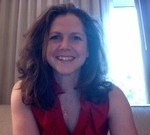 In Planned Obsolescence: Publishing, Technology and the Future of the Academy, Kathleen Fitzpatrick warns that academic futures need to be governed by expansive change: “We need to think less about completed products and more about text in process; less about individual authorship and more about collaboration; less about originality and more about remix; less about ownership and more about sharing” (83). If scholarly communication needs this type of revision, then I suggest so too does undergraduate pedagogy.
In Planned Obsolescence: Publishing, Technology and the Future of the Academy, Kathleen Fitzpatrick warns that academic futures need to be governed by expansive change: “We need to think less about completed products and more about text in process; less about individual authorship and more about collaboration; less about originality and more about remix; less about ownership and more about sharing” (83). If scholarly communication needs this type of revision, then I suggest so too does undergraduate pedagogy.
But, something happens when we start incorporating Digital Humanities and digital pedagogy into the undergraduate classroom, something that’s not embraced in academia: failure. Digital Humanities scholarship requires collaboration and playfulness – both risky endeavors in any Humanities classroom because of the need for assessment, structure, rules, and bounded learning. But, what happens when we modify some of the institutional structures and student learning outcomes to accommodate these two methods for learning and add into the curriculum a requirement for building something, anything, within the undergraduate classroom? The students collaborate, play around, and build materials for public scholarship, but we all risk failure – and then learn from it.
Using the Beard-Stair Project as an example, I would like to discuss a student-driven project that is run outside the institutional boundaries of a traditional English Department curriculum and the inherent risks, failures, and disappointments that are integral to this type of productive learning environment. Though the students collaborate, play around, and build materials for public scholarship, both I and the students have to accept some failures that are then assimilated into the project.
Katherine D. Harris (Tenured Assistant Professor, English and Comparative Literature, San José State University) specializes in Romantic-Era and 19th-century British literature, women’s authorship, the literary annual, 19th-century history print culture and history of the book, textuality, editorial theory, Digital Humanities, and pedagogy. Her work ranges from pedagogical articles on using digital tools in the classroom to traditional scholarship on a “popular” literary form in 19th-century England. Much of her work can be explored on her research blog: http://triproftri.wordpress.com.
Many thanks to The Center for the Humanities at The Graduate Center, CUNY for sponsoring this event.
Oct 18: DH in the Classroom: Shannon Mattern & Mark Sample
On 13, Oct 2011 | In Meetings | By Charlie Edwards
Please join us on Tuesday October 18, 2011, when we are excited to welcome two innovative practitioners of “Digital Humanities in the Classroom” – The New School’s Shannon Mattern, and Mark Sample, of George Mason University.
Details are below; we look forward to seeing you there!
Time & Place: Tuesday October 18, 2011, 6:30-8:30pm, Room 6496, CUNY Graduate Center
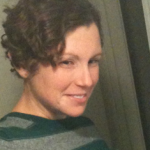 Shannon Mattern, “Beyond the Seminar Paper: Setting New Standards for New Forms of Student Work”
Shannon Mattern, “Beyond the Seminar Paper: Setting New Standards for New Forms of Student Work”
By exploring how new technologies might function as teaching tools or platforms on which students can demonstrate their learning, we expand the means and ends of education. With this increasing openness of pedagogical forms comes the responsibility to justify our choices and develop new forms of criticism and modes of assessment. Using several of my own courses as examples, I’ll address the challenges and potential benefits of holding students, and ourselves, accountable for the choices we make in our classrooms and advising relationships. I’ll focus on the value of (1) student documentation of their learning process, and in particular (2) students’ justification of their chosen methods and modes of presentation; (3) collaborative development of criteria for evaluation; and (4) connecting our work in the classroom to larger public problems and public institutions.
Suggested readings:
- Shannon Mattern, “Trying to Wrap My Head Around the Digital Humanities, Part 2” Words in Space (June 23, 2010)
- Shannon Mattern, “Evaluating Multimodal Student Work” Words in Space (August 11, 2010)
- Steve Anderson, “Regeneration: Multimedia Genres and Emerging Scholarship” Institute for Multimedia Literacy (June 29, 2008)
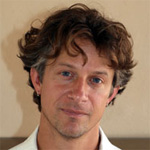 Mark Sample, “Building and Sharing When You’re Supposed to be Teaching”
Mark Sample, “Building and Sharing When You’re Supposed to be Teaching”
My pedagogy can increasingly be summed up in five words: “Make things. And share them.” I will talk briefly about my move toward assignments and projects in the undergraduate humanities classroom that emphasize making—as opposed to simply writing. I will also address the sharing aspect of these projects, which I see as a critical intervention into the enclosured experience most students have in higher education.
Suggested readings:
- “Student Contracts for Digital Projects” by Jeffrey McClurken
- “Integrating a Digital Project Into a Class: Deciding on a Project” by Amy Cavender
- “Using a Graphic Illustrator in Higher Education: Comic Life” by Billie Hara
Shannon Mattern is an Assistant Professor of Media Studies and Film at The New School and was, from 2006 to 2009, director of the Masters in Media Studies program. Her research and teaching focus on relationships among media, architectural, and urban space. Her book, The New Downtown Library, was supported by the Graham and Mellon foundations and published by the University of Minnesota Press in 2007. She has also published in several edited volumes and in journals including Space and Culture, Public Culture, and the Journal of Architectural Education. Her classes, which regularly involve the use of digital media, have resulted in the creation of exhibitions and installations and, in Fall 2010, thanks to the support of an Innovations in Education grant from The New School, a prototype of an open-source mapping tool for scholarly urban research. She is a recipient of The New School’s 2011 Distinguished University Teaching Award.
Mark Sample is an Assistant Professor in the Department of English at George Mason University, where is he also an affiliated faculty member with GMU’s undergraduate Honors College, its Cultural Studies doctoral program, and the Center for History and New Media. His research focuses on contemporary fiction, electronic literature, and videogames. His examination of the representation of torture in videogames was recently published in Game Studies, and he is working on a collaboratively written book about the Commodore 64 home computer. Mark has work in Hacking the Academy, a crowdsourced scholarly book forthcoming in print by the digitalculturebooks imprint of the University of Michigan Press. Mark has recently remixed the entire text of Hacking the Academy as Hacking the Accident. Mark is also an outspoken advocate of open source pedagogy and open source research. In recognition of his commitment to innovation in teaching, he was the recipient of George Mason’s 2010 Teaching Excellence Award. He is a regular contributor to ProfHacker, a feature at the Chronicle for Higher Education that focuses on pedagogy and scholarly productivity, and he also writes for Play the Past, a collaboratively edited scholarly blog that explores the intersection of cultural heritage and games.
This event is co-sponsored by The CUNY Digital Humanities Initiative and the CUNY Digital Studies Group, in partnership with The Center for the Humanities at The Graduate Center, CUNY.
May 4: Douglas Armato on “Digital Media’s Prehistory and the Nine Lives of Scholarly Publishing”
On 29, Apr 2011 | In Meetings | By Charlie Edwards
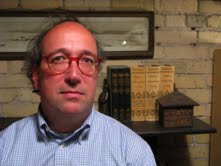 Please join us on Wednesday, May 4, 2011, when we are excited to welcome Douglas Armato, Director of the University of Minnesota Press and Editor of its Digital Culture Studies List, to speak on “Digital Media’s Prehistory and the Nine Lives of Scholarly Publishing.”
Please join us on Wednesday, May 4, 2011, when we are excited to welcome Douglas Armato, Director of the University of Minnesota Press and Editor of its Digital Culture Studies List, to speak on “Digital Media’s Prehistory and the Nine Lives of Scholarly Publishing.”
Scholarly publishing has survived through adaptation and economic reinvention and now faces new challenges, and opportunities, as the market for ebooks reaches escape velocity and the emergence of the digital humanities reconfigures academic work. Doug’s talk will discuss how university presses are adapting both individually and collectively to the digital environment and how presses remain a vital counterforce to the diminished status of of the humanities in higher education.
This will our last public event of the semester – we very much hope you can attend. We would also like to take the opportunity to thank all of you who have participated in CUNY DHI, online or in person, and helped to make the group’s first year such a success. We look forward to next year’s activities!
Doug’s talk is co-sponsored by The CUNY Digital Humanities Initiative and the CUNY Digital Studies Group, in partnership with The Center for the Humanities at The Graduate Center, CUNY.
Time & Place: Wednesday, May 4, 2011, 6:30-8:30pm, Room C201/202, CUNY Graduate Center
March 30: Kathleen Fitzpatrick on “Peer Review, Open Scholarship, and the Digital Humanities”
On 25, Mar 2011 | In Meetings | By Charlie Edwards
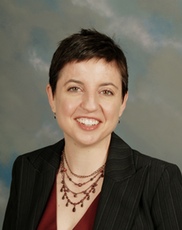 We are delighted that on Wednesday, March 30 we will be hosting Kathleen Fitzpatrick of Pomona College, who will speak on “Peer Review, Open Scholarship, and the Digital Humanities.”
We are delighted that on Wednesday, March 30 we will be hosting Kathleen Fitzpatrick of Pomona College, who will speak on “Peer Review, Open Scholarship, and the Digital Humanities.”
Peer review is the sine qua non of the academy: we use it in nearly everything we do, and cannot imagine what scholarship would be without it. But for such a crucial component of the ways that we work, none of us are wholly satisfied with it, either. Moreover, conventional forms of peer review are often misaligned with the kinds of open scholarship being produced in the digital humanities. This talk takes a brief look at the history and the present criticism of peer review as a means of exploring its future, particularly as scholarly publishing moves increasingly online: what might peer review that took advantage of the reputation economies developed within networked communities look like, and how might it help scholarly communication flourish?
Kathleen Fitzpatrick is Professor of Media Studies at Pomona College. She is author of The Anxiety of Obsolescence: The American Novel in the Age of Television (2006) and Planned Obsolescence: Publishing, Technology, and the Future of the Academy, forthcoming from NYU Press. Planned Obsolescence was published using an experimental open peer review process by MediaCommons Press, a project of the digital scholarly network MediaCommons, co-founded by Kathleen. She has published in journals including the Journal of Electronic Publishing, PMLA, Contemporary Literature, and Cinema Journal, and has blogged at Planned Obsolescence since 2002.
Kathleen’s talk is co-sponsored by The CUNY Digital Humanities Initiative and the CUNY Digital Studies Group, in partnership with The Center for the Humanities at The Graduate Center, CUNY.
Time & Place: Wednesday, March 30, 2011, 6:30-8:30pm, Room 6417, CUNY Graduate Center
March 9: David L. Hoover on “New-Fangled/Old-Fashioned Digital Literary Studies”
On 03, Mar 2011 | In Meetings | By Charlie Edwards
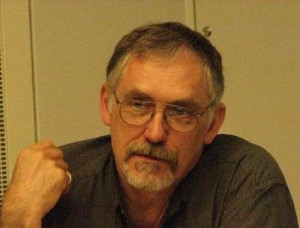 Please join us on Wednesday March 9, when we will welcome Professor David L. Hoover of New York University to speak on “New-Fangled/Old-Fashioned Digital Literary Studies.”
Please join us on Wednesday March 9, when we will welcome Professor David L. Hoover of New York University to speak on “New-Fangled/Old-Fashioned Digital Literary Studies.”
Although computational approaches to literary studies have a relatively long history, dating back to at least the 1960s, the recent explosive growth in the availability of digital texts and the increasing power of digital tools has encouraged new methods and techniques. David’s talk will take a look at some of the kinds of literary analysis that are possible only with digital texts and digital tools, and then focus in a bit more depth on a relatively new method of extracting the characteristic vocabulary of an author, text, or group.
David is Professor of English at New York University, where he has taught since 1981. His research interests include the digital humanities, computational stylistics, corpus stylistics, authorship attribution, animal language and cognition, and Old English meter. His most recent books are Stylistics: Prospect and Retrospect (2007) and Language and Style in The Inheritors (1999). He also teaches a seminar on “Out-of-the-Box Text Analysis” at the Digital Humanities Summer Institute held at the University of Victoria, Canada.
David’s talk is co-sponsored by The CUNY Digital Humanities Initiative and CUNY Graduate Center’s PhD Program in English, in partnership with the CUNY Digital Studies Group and The Center for the Humanities at The Graduate Center, CUNY.
We look forward to seeing you there.
Time & place: Wednesday, March 9, 2011, 6:30-8:30pm, CUNY Graduate Center, Room 6417.
Feb. 23: Patrik Svensson on “Designing the Digital Humanities”
On 17, Feb 2011 | In Meetings | By Charlie Edwards
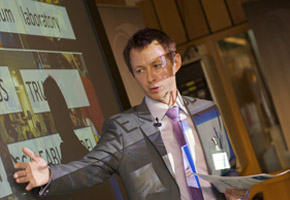 We are delighted that on Wednesday, February 23, we will be hosting Patrik Svensson, director of HUMlab at Umeå University, Sweden, for a talk entitled “Designing the Digital Humanities.”
We are delighted that on Wednesday, February 23, we will be hosting Patrik Svensson, director of HUMlab at Umeå University, Sweden, for a talk entitled “Designing the Digital Humanities.”
Patrik tells us: “The digital humanities are being built and negotiated at this point in time by universities, departments, scholars, programmers, funding agencies, construction workers and various other people and institutions. Drawing on my four-article series on the digital humanities and my own take on the field, I will talk about understanding, building and designing the digital humanities. I will use HUMlab at Umeå University as a starting point, and will also be showing some material – including photos and film clips – from the lab. The discussion will range from visions and design parameters to material manifestations such as a brand-new led-based ceiling light fixture/screen and a plant wall. Questions raised include: What choices do we need to make? What are the underlying visions? What basic values are important? What cyberinfrastructure do we need? Can there be a no-tent digital humanities? What is the advantage of physical lab or studio spaces? Can the digital humanities change the world (or at least the academy)? I combine analytical work on the digital humanities as a field and project with a strong engagement in the future of the field.”
Patrik’s talk launches our public meetings for the Spring semester (see the full schedule), and is co-sponsored by the CUNY Digital Humanities Initiative and the CUNY Digital Studies Group, in partnership with The Center for the Humanities at The Graduate Center, CUNY.
Please join us for this exciting event.
Time & place: Wednesday, February 23, 2011, 6:30pm-8:30pm, CUNY Graduate Center, Room 9205.
CUNY Digital Humanities Initiative Fall 2010 Schedule
On 04, Oct 2010 | In Meetings | By Charlie Edwards
After a great first meeting of CUNY DHI, here are the details of our upcoming sessions for Fall 2010. It’s an exciting line-up, and we hope that some of you will be able to join us in person here at the Graduate Center for these events.
October 13th: DH & Ed Tech
Continuing our theme, “Defining the Digital Humanities,” the group will turn to the relationship between educational technology and the digital humanities. CUNY’s own Mikhail Gershovich, Joe Ugoretz, and Luke Waltzer will present their work on key initiatives in networked pedagogy: Blogs@Baruch and Macaulay Honors College’s ePortfolio Gateway and Macaulay Social Network. Boone Gorges will discuss Anthologize, the product he helped develop this summer in One Week | One Tool.
Time & place: 6:30pm-8:30pm, CUNY Graduate Center, room 6417.
October 22nd: Samir Chopra & Scott Dexter
The Digital Studies Group, our parent organization, is hosting a seminar with Brooklyn College’s Samir Chopra and Scott Dexter, who will present their work on the free and open source software (FOSS) movement. Chopra and Dexter are the authors of Decoding Liberation: The Promise of Free and Open Source Software (Routledge, 2007).
Time & place: 5pm-7pm, CUNY Graduate Center, room 9205.
November 17th: Eben Moglen
The Digital Studies Group is sponsoring a talk by Eben Moglen of Columbia University. Professor Moglen plans to address the large question of intellectual property and 21st century digital technologies, given a property system based on industrial forms and legal structures. His talk given earlier this year at NYU, “Freedom and the Cloud,” inspired a group of students to create Diaspora, “the privacy aware, personally controlled, do-it-all, open source social network.”
Time & place: 7pm, CUNY Graduate Center, Skylight Room (9th Floor).
December 1st: Tom Scheinfeldt
We are delighted to welcome Tom Scheinfeldt, Managing Director of George Mason University’s Center for History & New Media (CHNM) to CUNY DHI. In his talk, “Stuff Digital Humanists Like: Defining Digital Humanities by its Values,” Scheinfeldt plans to discuss the reasons why some DH efforts succeed while others fall flat. By highlighting some of the things that do and don’t work in DH projects, he plans to isolate some common characteristics, and see if doing so can point us to a clearer definition, or at least understanding, of DH.
Time & place: 6:30pm-8:30pm, CUNY Graduate Center, room 9207.
December 2nd: CUNY Pie
Because we cannot live on discourse alone, we will crash the monthly meeting of CUNY pizza lovers. Join us as we feast on NYC’s greatest food.
Time and place: 6:30pm, John’s Pizza, Bleeker Street.
December 14th: Special Session of the CUNY IT Conference
This year’s CUNY IT Conference is titled “Instructional/Information Technology in CUNY: The Tried and the New.” In addition to its regular program on December 3rd, a special session will be held at the Graduate Center on December 14th. This event will focus on “the new” – emerging technologies and applications, new uses and trials, even prospects rather than realized projects. Virginia Heffernan of the New York Times will deliver the keynote address. CUNY DHI will take part in a session called “Building Communities on the CUNY Academic Commons.”
Time and place: 9am-4pm, CUNY Graduate Center, rooms TBA.


 Welcome to the blog of the CUNY DHI, an effort to build momentum and community around Digital Humanities practitioners at CUNY. We hope you'll join us at our upcoming events and that you'll follow this blog to hear about the latest news in the field.
Welcome to the blog of the CUNY DHI, an effort to build momentum and community around Digital Humanities practitioners at CUNY. We hope you'll join us at our upcoming events and that you'll follow this blog to hear about the latest news in the field.



Recent Comments